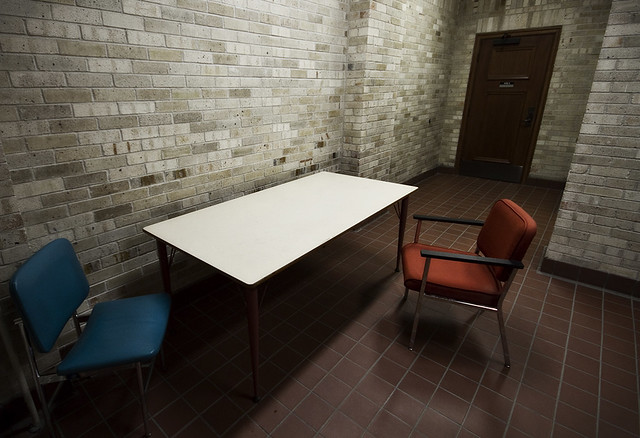UPDATED JUNE 6, 2019
Article by Daniel A. Levy, Esq.
Related: Criminal Law, What happens on the first court date if arrested in New Jersey?, Understanding the fee for criminal defense cases
As part of my New Jersey criminal defense practice, the most common question that I hear from clients is, “what happens if the police don’t read me my Miranda rights?” Most people have seen many TV shows and news stories where a person is arrested and the police promptly read them their Miranda rights. But very often police in New Jersey make arrests without ever reading the suspect’s rights, so the confusion is understandable. As discussed below, failing to read Miranda rights does not mean that the arrest is invalid or that the charges will all be dismissed. It usually is meaningless, or it could result in the trial judge throwing out a confession.
First, a little background on what Miranda rights are and what it means to have police “read you your rights”. As part of the United States and New Jersey Constitutions, all citizens have certain rights. Many people are familiar with the fact that you can “plead the Fifth” (i.e. not be forced to incriminate yourself) and that police (usually) need search warrants to search for something. This article is not about addressing every single right that a person may have. But the point is that these rights exist because we have a Constitution – they aren’t created because a police officer tells you “your rights” and they don’t disappear if the police fail to read you your rights.
Now, let’s fast forward a bit from the signing of the Constitution to 1963 when a man by the name of Ernesto Miranda was arrested in Phoenix, Arizona and charged with kidnapping and rape. After about two hours of police interrogation without a lawyer present, Mr. Miranda signed a confession for the rape charge. The confession – typed by the police – stated that he was making the statement freely and voluntarily without any coercion. When the prosecutor tried to admit the statement into evidence, Miranda’s lawyer objected and argued that the confession was not truly voluntary because Miranda had the right to remain silent, and had the right to consult with an attorney, but he was never told that he could do those things. The trial judge rejected the argument, Miranda was convicted, he appealed, the Arizona Supreme Court upheld the conviction, and the case went up to the United States Supreme Court. The resulting opinion in Miranda v. Arizona is the source of the well-known “Miranda rights” – the Supreme Court held in a 5-4 decision that:
The person in custody must, prior to interrogation, be clearly informed that he has the right to remain silent, and that anything he says will be used against him in court; he must be clearly informed that he has the right to consult with a lawyer and to have the lawyer with him during interrogation, and that, if he is indigent, a lawyer will be appointed to represent him… If the individual indicates in any manner, at any time prior to or during questioning, that he wishes to remain silent, the interrogation must cease … If the individual states that he wants an attorney, the interrogation must cease until an attorney is present. At that time, the individual must have an opportunity to confer with the attorney and to have him present during any subsequent questioning.
Again, it’s important to note that Miranda always had these rights. The Miranda case just made clear that a suspect must be advised of their rights prior to questioning. This was a very controversial decision at the time, especially in light of the fact that police officers always just assumed that they could question suspects and not have to remind them not to incriminate themselves. The politics at the time surely played a role in the decision. However, I’ve read several commentators on the case who opined that the Supreme Court today or in the recent past could probably have easily overturn Miranda since everyone now knows that they “have their rights” and the politics on the Court have changed. However, history has shown that MORE people confessed to crimes after Miranda than before (I guess assuming that it was fine to confess since “I’ve got my rights”) and no one wants to lead a Supreme Court that has “taken away the people’s rights”. As an aside, even though Mr. Miranda’s conviction was overturned and the confession thrown out, he was retried and still convicted of the rape based on the other evidence in the case.
Now let’s fast forward to today in a typical New Jersey case. In the vast majority of cases, police either show up to the scene of a crime and arrest a suspect at the scene who they feel is guilty, or they do a limited amount of investigation and arrest a suspect soon after the crime (or send them a letter or phone call and ask them to turn themselves in). When they make the arrest, they have no obligation whatsoever to read the suspect their Miranda rights. The arrest is valid regardless of whether or not they read the suspect their rights. One simply has nothing to do with the other. So if a person gets arrested and they aren’t read their rights, they can’t have the arrest undone and the charges will not simply be dismissed.
The only time when police would read someone their rights is if they want to take their statement. Here is where Miranda is important. If the police fail to advise a suspect of their rights then the entire statement will likely be excluded in court later on (the defendant may still be convicted even if the statement is thrown out). Therefore, what is almost always done in the police station in New Jersey is that the police will present a written form to the suspect and ask them to sign the form. This form says that the suspect is waiving all of their rights to remain silent and have an attorney present. If you are presented with such a form, do not even consider signing it – contact an attorney right away. Typically, police already intend to make the arrest and are only taking the statement to get more evidence against the person. Also, interrogations in New Jersey are also typically video taped and the officer will read the Miranda waiver on the video so there can be no doubt that the defendant was advised of their rights and waived them.
If you are facing charges for a crime, please call us right away for a 100% free consultation, on the phone or in our office. We will review all court documents with you and advise you on what we can do to help you. Remember, the police and prosecutor are there to arrest and convict those accused of crimes. Do not expect to appear in court on your own, explain your side of the story, and have the judge agree with everything you say. This is very rare. It is important to be represented by a skilled attorney.



